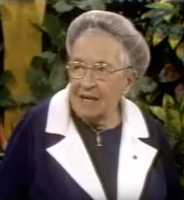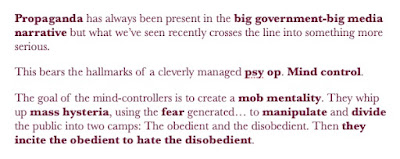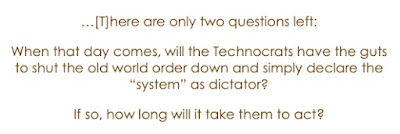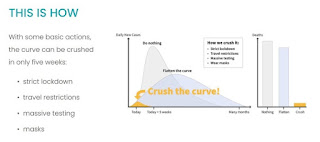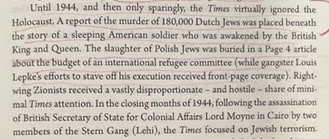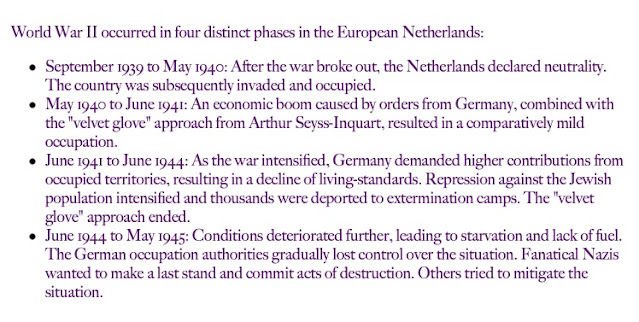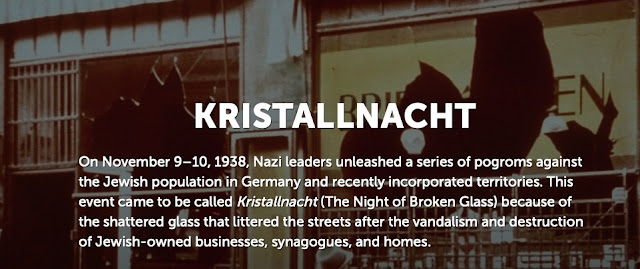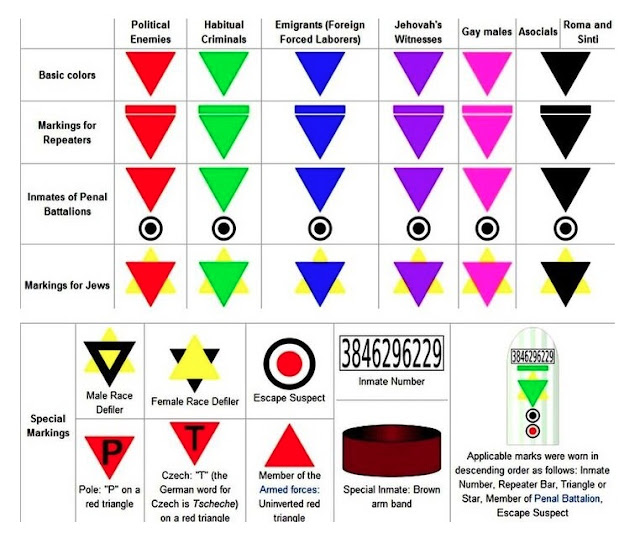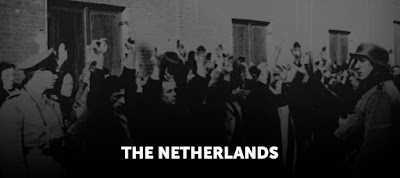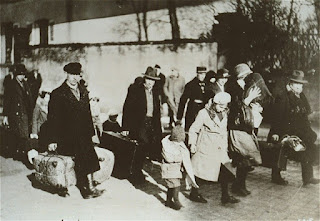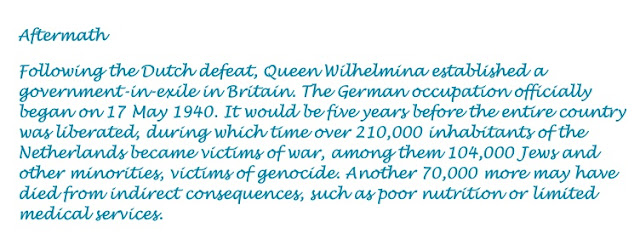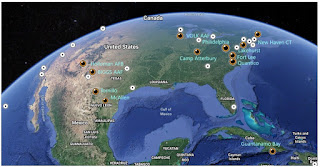‘Why are ye so fearful?
how is it that ye have no faith?’”
(Mark 4:40)
open the eyes of these men,
that they may see.’…”
(2 Kings 6:20)
“Gaslighting is an insidious form of manipulation and psychological control. Victims of gaslighting are deliberately and systematically fed false information that leads them to question what they know to be true…. They may end up doubting their memory, their perception, and even their sanity. Over time, a Gaslighter’s manipulations can grow more complex and potent, making it increasingly difficult for the victim to see the truth.”[1]
describing her family’s work in the Dutch Resistance during WWII saving
the lives of Jewish people by hiding them in their unusual home. For
this “crime” Corrie was sent to a concentration camp.
testimony would directly impact my life in 1976 when I recommitted my
life to Jesus Christ. At this pivotal moment in my life Corrie ten Boom
came to town. I followed her from venue to venue hungry to hear her
message based on hope, forgiveness and the simplicity of the Gospel. But
she also warned the church, sometimes quite sharply, to prepare us for the
days that lay ahead.
Already in 1976 she could discern a cloud of darkness coming into the
land. And she mentioned something significant that I filed away in my
brain for future reference. She said that within six short weeks after the Nazis imposed
their Regime over Holland that life changed dramatically. Outwardly
most things appeared normal, but there were insidious signs of a new
normal.
I
would spend the next four and a half decades of my life watching the dark clouds
as they arose. I would speak about the threatening clouds, write about them, and publish warnings about the impending storm. Meanwhile, I was awaiting with an inexplicable foresight that day that would
mark the beginning of the six weeks that Corrie had described.
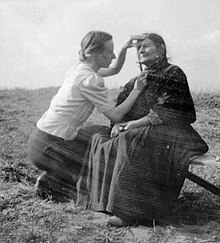 |
| Exhibit 2: Deadly fake science in an earlier Regime |
Oftentimes, indeed, I wished that Willem did not see quite so well, for much that he saw was frightening. A full ten years ago, way back in 1927, Willem had written in his doctoral thesis, done in Germany, that a terrible evil was taking root in that land. Right at the university, he said, seeds were being planted of a contempt for human life such as the world had never seen. The few who had read his paper had laughed.(p. 29)
Now of course, well, people weren’t laughing about Germany. Most of the good clocks came from there, and recently several firms with whom we had dealt for years were simply and mysteriously “out of business.” Willem believed it was part of a deliberate and large-scale move against Jews; every one of the closed businesses was Jewish.(p. 29)And at that moment Willem entered the room. Behind him came Tine, his wife, and their four children. But every eye in the room had settled on the figure whose arm Willem held in his. It was a Jew in his early thirties in the typical broad-brimmed black hat and long black coat. What glued every eye to this man was his face. It had been burned. In front of his right ear dangled a gray and frazzled ringlet, like the hair of a very old man. The rest of his beard was gone, leaving only a raw and gaping wound….“He got out of Germany on a milk truck,” Willem told us rapidly in Dutch. “They stopped him on a streetcorner—teen-aged boys in Munich—set fire to his beard.” (p. 30)
And so the shadows fell across us that winter afternoon in 1937, but it rested lightly. Nobody dreamed that this tiny cloud would grow until it blocked out the sky. And nobody dreamed that in this darkness each of us would be called to play a role: Father and Betsie and Mr. Kan and Willem—even the funny old Beje with its unmatching floor levels and ancient angles….I knew that the experiences of our lives, when we let God use them, become the mysterious and perfect preparation for the work He will give us to do.”(p. 31)
And while Haarlem and the rest of Holland strolled and bowed and swept its steps, the neighbors on our east geared for war. We knew what was happening—there was no way to keep from knowing. Often in the evening, turning the dial on the radio. We would pick up a voice from Germany. The voice did not talk, or even shout. It screamed….
And yet, in the interludes, we forgot. Or, when Willem was visiting and would not let us forget, or when letters to Jewish suppliers in Germany came back marked “Address Unknown,” we still managed to believe that it was primarily a German problem. “How long as they going to stand for it?” we said. “They won’t put up with that man for long.”(p. 74)
Then the Prime Minister’s voice was speaking to us, sonorous and soothing. There would be no war. He had assurances from high sources on both sides. Holland’s neutrality would be respected. It would be the Great War all over again. There was nothing to fear. Dutchmen were urged to remain calm and to— (p. 78)
“War.” (p. 79)
For five days Holland held out against the invader. (p. 80)
The first morning over the radio came instructions that ground-floor windows must be taped.
A few nights later the radio carried the news we dreaded: the Queen had left… In the morning the radio announced tanks advancing over the border. (p. 80)
But during the first months of occupation, life was not so very unbearable…. With no new shipments coming in, people bought up everything we had in stock…. (p. 81)
The curfew too, at first, was no hardship for us, since it was originally set at 10:00 P.M., long after we were indoors in any case. What we did object to were the identity cards each citizen was issued. These small folders containing photograph and fingerprints had to be produced on demand. A solider or a policeman—the Haarlem police were now under the direct control of the German Commandant—might stop a citizen at any time and ask to see his card; it had to be carried in a pouch about the neck. We were issued ration cards, too, but at least that first year, the coupons represented food and merchandize actually available in the stores. Each week the newspapers announced what the current coupons could be exchanged for.That was another thing it was hard to adjust to—newspapers that no longer carried news. Long glowing reports of the successes of the German army on its various fronts. Eulogies of German leaders, denunciations of traitors and saboteurs, appeals for the unity of the “Nordic peoples.” But not news that we could trust.
And so we depended again on the radio. Early on in the occupation, Haarlemers were ordered to turn in all private sets. Realizing it would look strange if our household produced none at all, we decided to turn in the portable and hide the larger, more powerful instrument in one of the many hollow spaces beneath the old twisting staircase.
(p. 82)Like most private telephones ours had been disconnected early in the occupation.(p. 87)
The
evening’s activity had to be kept brief because the city now had
electricity only a short while each night, and candles had to be hoarded
for emergencies.(p. 124)
The true horror of occupation came over us only slowly. During the first year of German rule, there were only minor attacks on Jews in Holland. A rock through the window of a Jewish-owned store. An ugly word scrawled on the wall of a synagogue. It was as though they were trying us, testing the temper of the country. How many Dutchmen would go along with them?
And the answer, to our shame, was many…. (p. 84)
On our daily walk, Father and I saw the symptoms spread. A sign in a shop window: JEWS WILL NOT BE SERVED. At the entrance to a public park: NO JEWS. On the door of the library. In front of restaurants, theaters, even the concert hall….
One noon… the sidewalks were bright with yellow stars sewn to coats and jacket fronts. Men, women, and children wore the six-pointed star with the word Jood (Jew) in the center…. (p. 84)
Worst were the disappearances. A watch, repaired and ready, hanging on its hook in the back of the shop, month after month. A house in Nollie’s block mysteriously deserted, grass growing in the rose garden. One day Mr. Kan’s shop up the street did not open….We never knew whether these people had been spirited away by the Gestapo or gone into hiding before this could happen. Certainly public arrests, with no attempt to conceal what was happening, were becoming more frequent.(p. 85)
The rabbi had been one of the first to vanish from Haarlem.(p. 90)It was a drizzly November morning in 1941, a year and a half after the invasion, as I stepped outside to fold back the shutters that I saw a group of four German soldiers coming down the Barteljorisstraat. They were wearing combat helmets low over their ears, rifles strapped to their shoulders…. At Weil’s Furriers… the group stopped….Inside we could hear glass breaking. Soldiers began carrying out armloads of furs.(p. 86)
Willem pressed his fingers to his eyes and I noticed suddenly how much white was in his beard. “It’s getting harder,” he said. “Harder every month. They’re feeling the food shortage now even on the farms… they won’t take anyone without a ration card.”
“Without a ration card! But Jews aren’t issued ration cards!” [Corrie replies]…..
“Ration cards?” He gestured vaguely. “You steal them.”(p. 95)
It was Sunday, May 10, 1942, exactly two years after the fall of Holland….Each month the occupation seemed to grow harsher, restrictions more numerous. The latest heartache for Dutchmen was an edict making it a crime to sing the “Wilhelmus,” our national anthem. (p. 91)
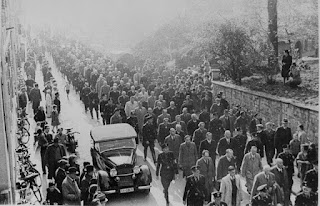 |
| Exhibit 12: On the way to the camps |
The Nazis in Nuremberg stated they were only following the” laws of the land,” and that their own legal system protected them. Even Adolph Eichmann said, “I was simply following the laws of war and my flag.”
Romans 13:1-14 tells believers to “Let every soul be subject unto the higher powers. For there is no power but of God: the powers that be are ordained of God.” Paul belabored the point that we are to be at peace and submit ourselves to governing authorities since all authority comes from God.
Judeo-Christians believe in the one true God and know that abortion is evil and against God’s law. We battle this evil, despite it being the law of the land.
In Egypt, the midwives refused to murder the newborn Jewish babies, lied to Pharoah and allowed them to live… against his edicts.
According to the Book of Joshua, Rahab, a woman who lived in Jericho in the Promised Land, assisted the Israelites in capturing the city by hiding two men who had been sent to scout the city prior to their attack, against the law of the land. She knew these two men were God’s people and she ultimately took her place with righteous converts.
When the law of the land contradicts God’s command, we are to disobey the law of the land and obey God’s law. We are again at that precipice.
Make your choice.[6]
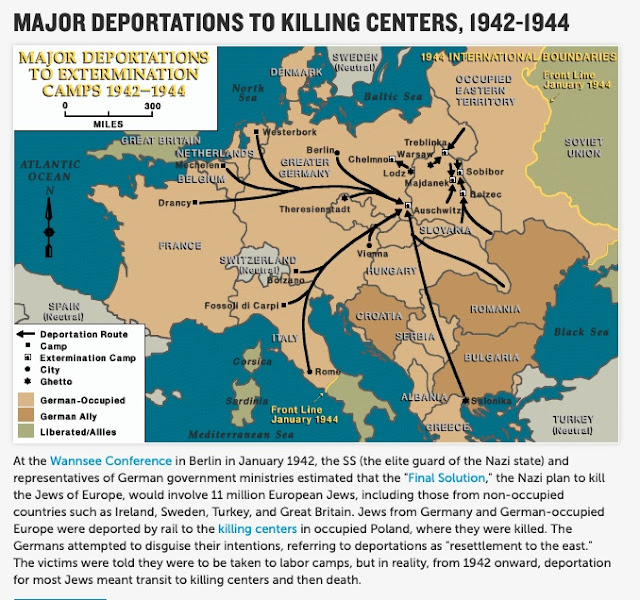 |
| Exhibit 14: Death camp locations |
and to turn them from darkness to light,
and from the power of Satan unto God,
that they may receive forgiveness of sins,
and inheritance among them
which are sanctified by faith
that is in Me.”
(Acts 26:18)[7]
and He will throughly purge His floor,
and will gather the wheat into His garner;
but the chaff He will burn with fire unquenchable.”
(Luke 3:17)
places on YouTube that show the entire movie The Hiding Place which
depicts the experience of the ten Boom family during WWII. The movie is
also available as a Prime Video, Blu-ray and DVD on Amazon.com. Read the
book. Listen to a portion of Corrie’s testimony:
https://www.youtube.com/watch?v=AdTN_wowNU8
6. Kelleigh Nelson, NewsWithViews article published September 9, 2021, https://newswithviews.com/the-killer-covid-vax-a-genocidal-bioweapon-part-2/
https://herescope.net/2006/11/sermon-not-likely-to-be-preached.html
Part 2: Ethnos vs. Ethnos & Big Media Narratives
Part 3 Ethnos Dominionism
wherein the Son of man cometh.”
(Matthew 25:13)

